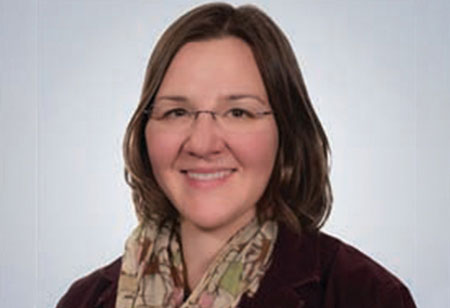Thank you for Subscribing to Healthcare Business Review Weekly Brief

Equitable Primary Care: Breaking Down Barriers for People with Significant Needs
Healthcare Business Review
As the foundation of our healthcare system, primary care is getting renewed focus from government and academic sources to improve population health and create more equitable healthcare outcomes. Despite this renewed focus, seniors and individuals with disabilities continuously face challenges to access primary care–an obstacle further exacerbated throughout the COVID-19 pandemic. These challenges include, but are not limited to, lack of transportation and appropriate physical spaces, provider comfort with complex needs, lack of comprehensive teams, low reimbursement, and short appointment times.
While everyone can benefit from a strong relationship with a primary care provider, it is critically essential for seniors and people with disabilities. Older adults are more likely to have a chronic disease, with 60 percent of seniors living with two or more chronic conditions. People with disabilities often have challenges accessing disability-competent care.Data published by the CDC shows that one in four adults with disabilities, who were between 45 to 64 years old, did not have a routine check-up in the past year.
Commonwealth Care Alliance® (CCA) operates on the premise that, because of these challenges, the cornerstone of primary care for people with disabilities must center around the actual needs of a patient and not the limitations of a practice. To better serve individuals with complex needs, including those with chronic conditions and physical, intellectual, and behavioral health disabilities, primary care services must be personalized. This approach, practiced by CCA Primary Care, requires that we build relationships based on trust, empower patients through dignity of risk, meet patients—both literally and figuratively—where they are, and develop strategic partnerships that complement the ongoing medical or psychiatric care.
It is important to note that our practice exists in a value-based arrangement through an effectively aligned payer-provider relationship, allowing us to utilize the interdisciplinary care team and other services not traditionally supported under fee-for-service reimbursement. This includes supporting our patients with transportation services and access to various community resources.
“Developing Understanding Between Patients And Their Care Teams Is Fundamental To Supporting The Patient And Achieving The Best Outcomes”
BUILDING RELATIONSHIPS BASED ON TRUST
Individuals with significant needs can benefit greatly from an integrated care team that is inclusive of primary care providers, physicians and advanced practice clinicians, behavioral health providers, rehabilitation specialists, nurses, and community health workers. Culture and approach to care are equally important; developing understanding between patients and their care teams is fundamental to supporting the patient and achieving the best outcomes. In addition to frequent check-ins with the patient and/or caregivers, the integrated care team maintains a close communication regarding shared patients through daily huddles and team meetings.
EMPOWERING THROUGH DIGNITY OF RISK
When responding to the clinical needs of a patient, it is critical to also consider social, emotional, and intellectual needs. Importantly, care teams must respect patients’ choices and follow the concept of dignity of risk. This concept means that all legally competent adults have the right to make their own choices about their care, even if those choices may lead to poor health outcomes. This approach builds and maintains trust and is especially critical for patients who have experienced trauma or are living with a mental health diagnosis. This concept may be difficult for providers who may be troubled by what they consider to be“bad decisions.”
MEETING PATIENTS WHERE THEY ARE
To keep the patient at the center of treatment planning, care teams must meet the patient where they are most comfortable. About 60 percent of CCA Primary Care patients receive care primarily in their homes. When caring for individuals with complex needs in an ambulatory setting, it is important that physical locations are equipped to provide disability-competent care, with features such as Hoyer lifts and wheelchair scales, which are intended to support comprehensive examinations. It is important to spend quality time with each patient during their visit, to ensure they feel valued and to keep them engaged in their care.Assuring patients have access to appropriate communication devices or interpreter services is also important.
DEVELOPING PARTNERSHIPS THAT SERVE PATIENTS’ NEEDS
We often work in a partnership with home health agencies and incorporate their family and personal-care-supports, as appropriate. In certain cases, we collaborate closely with our State’s Departments of Mental Health, Developmental Services, and other external agencies. Additionally, through CCA, our patients have access to palliative care as well as community paramedics for urgent or after-hours needs. As we are part of the same organization, we can ensure the right level of service based on patient need.
CCA Primary Care is also expanding the services at our ambulatory locations to include Engagement Centers for our patients to improve quality of care and health outcomes through acute care diversion, peer support, behavioral health and addiction treatment, and social engagement in a flexible, non-judgmental, and welcoming environment.
The research is clear that primary care is essential to advance population health and equitable outcomes, particularly for the most vulnerable and complex among us: seniors and people with disabilities. Their optimal care requires a comprehensive team, advanced systems, and, most importantly, a trusting relationship with the patient. With this strong foundation, healthcare providers can break down barriers to care and improve overall health and well-being for their patients.









